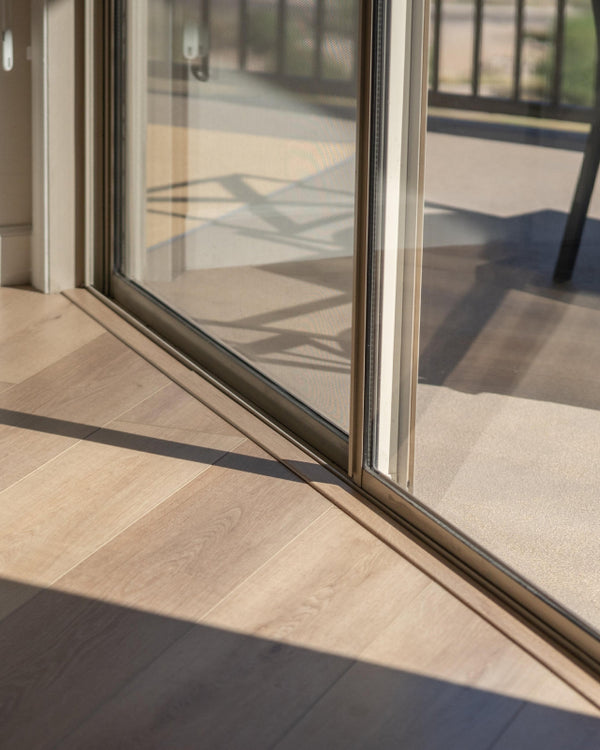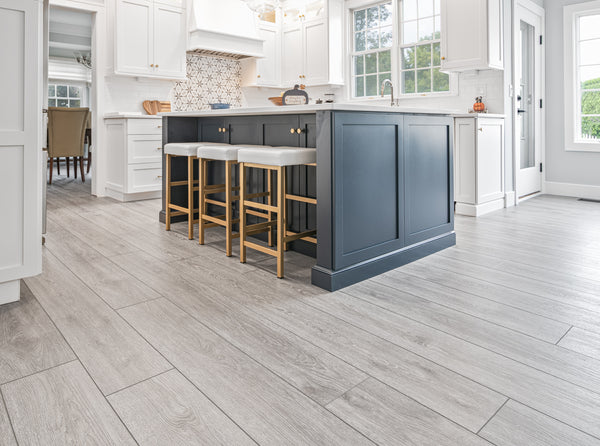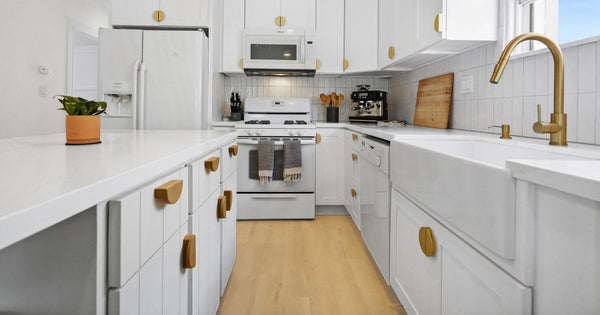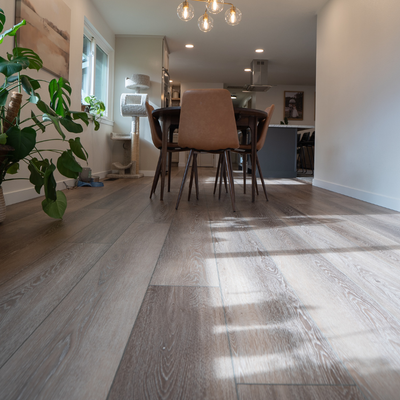The world of DIY projects is both exciting and rewarding. Whether you're crafting unique home decor or tackling full-scale renovations, there's nothing like the satisfaction of creating something with your own hands.
At Flooret, we love watching our customers transform into DIY flooring experts, gaining confidence as they take on their projects. If you are embarking on your flooring project, you can have peace of mind knowing our expert support team is ready to answer all of your questions from start to finish. We encourage everyone to embrace the DIY spirit, and these five tips are a great place to start!
1. Start with a Plan
Every successful DIY project begins with a well-thought-out plan. Before you dive into your next endeavor, take the time to:
- Research: Gather inspiration and ideas from online resources, books, and DIY blogs. If you’re looking for flooring inspiration, check out our Instagram, Pinterest, or YouTube Channel for before and after photos, installation tips and more.
- Visualize the project: Create a rough sketch or blueprint of your project. For an even more realistic vision, use our Roomvo tool to see our floors in your space.
- List Materials and Tools: Make a comprehensive list of everything you'll need to complete your project.
- Set a Budget: Determine how much you're willing to spend and try to stick to it.
Having a clear plan will not only make your project run smoother but also help you avoid unnecessary mistakes and expenses.
2. Invest in Quality Tools
Quality tools are the backbone of any DIY project. While it might be tempting to go for the cheapest options, investing in high-quality tools will save you time, effort, and frustration in the long run. A list of tools you’ll need to install your Flooret floors can be found here. Some essential tools every DIY enthusiast should have include:
- Power Drill: A versatile tool for drilling holes and driving screws.
- Tape Measure: Accurate measurements are crucial for any project.
- Level: Ensures your work is straight and balanced.
- Saw: Depending on your projects, a handsaw or circular saw can be invaluable.
- Screwdrivers and Wrenches: A good set of these will cover most basic needs.
Taking care of your tools by cleaning and storing them properly will ensure they last for years.

3. Learn New Skills
The more skills you have in your DIY toolkit, the more projects you can tackle. Don’t be afraid to push your boundaries and learn something new. Here are a few ways to expand your skills:
- Online Tutorials: Platforms like YouTube offer countless tutorials on almost any DIY skill you can imagine.
- Workshops: Many home improvement stores offer free or low-cost workshops on various DIY topics.
- Community Classes: Look for local community centers or colleges that offer classes on woodworking, plumbing, electrical work, and more.
- Practice: The best way to learn is by doing. Start with small projects and gradually take on more complex tasks.
4. Embrace Mistakes
Mistakes are inevitable in DIY projects, but they’re also valuable learning opportunities. When things don’t go as planned:
- Stay Calm: Take a deep breath and assess the situation.
- Analyze What Went Wrong: Understanding your mistakes will help you avoid them in the future.
- Adapt and Overcome: Sometimes, mistakes can lead to creative solutions you hadn’t considered before.
- Seek Help if Needed: Don’t hesitate to ask for advice from more experienced DIYers or professionals.
Remember, every mistake brings you one step closer to mastering your craft.

5. Prioritize Safety
Safety should always be your top priority in any DIY project. Taking the necessary precautions can prevent accidents and injuries. Keep these safety tips in mind:
- Wear Protective Gear: Safety glasses, gloves, and ear protection are essential.
- Read Instructions: Always read and follow the instructions for your tools and materials.
- Keep Your Workspace Clean: A cluttered workspace can lead to accidents.
- Take Breaks: Regular breaks will keep you fresh and alert.
- Know Your Limits: If a project involves tasks beyond your skill level, consider hiring a professional.
By prioritizing safety, you’ll ensure that your DIY projects are not only successful but also enjoyable.
Embarking on DIY projects can be incredibly fulfilling, allowing you to express your creativity and bring your vision to life. With a solid plan, quality tools, a willingness to learn, the ability to embrace mistakes, and a commitment to safety, you’re well on your way to becoming a DIY expert. Happy crafting!
















